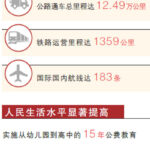September 15 to 21 is the 2025 National Cybersecurity Awareness Week. Recently, multiple typical cases of online rumors were announced: “Hangzhou Asian Games venue collapses,” “A human trafficker appeared near the residential area and directly snatched a three-year-old child into a van,” “A Chinese woman married into a foreign slum and is seeking help to return to China”… Why do such online rumors, often reaching “100K+,” always manage to precisely mislead the public and harvest traffic?
“Bad news travels fast.” From psychological and neuroscientific perspectives, the human brain processes emotional information much faster than rational information, bypassing cortical analysis. In the era of information explosion, online communication follows the “three-second rule”: evoking emotions like fear, anger, or sympathy within the first three seconds.
Some self-media accounts excel at emotional manipulation. Driven by the lure of traffic monetization, they treat “violent account growth” as a golden ticket. Fabricating stories like “Inspiring! 54-year-old aunt grinds for thirty years, gets into China University of Political Science and Law!”, “Dalian gas pipeline leak causes explosion, 3 dead and 6 injured”, or “Absurd! Woman ‘catches mistress’ in downtown, vents anger by stomping on Porsche!” instantly ignites public emotion, prompting clicks. Especially regarding public safety, most people “would rather believe it exists than not,” accelerating rumor spread. Some teams even form complete industrial chains from content fabrication to packaging, promotion, and traffic monetization. For example, health accounts first attract traffic with “certain substance causes cancer,” then promote “detox products.” Others directly sell “violent account growth” techniques, severely disrupting the online ecosystem.
To some extent, platform algorithms also fuel rumor propagation. Basing recommendations on “interaction volume” and “completion rate,” they create an “emotion–sharing–recommendation” loop. Rumors initially grab attention with extreme emotions, and algorithms then push them to more people, breaking through social circles and spreading virally. Although platforms and regulators continuously crack down—for instance, the WeChat Rumor Debunker collaborates with 1,135 debunking institutions and has debunked 9,165 rumors (data as of September 15)—“violent account growth” remains rampant.
According to the Law of the People’s Republic of China on Penalties for Administration of Public Security, spreading rumors, falsely reporting dangers, epidemics, police situations, or otherwise intentionally disrupting public order is punishable by five to ten days detention and a fine of up to five hundred yuan; for minor cases, detention of up to five days or a fine of up to five hundred yuan. For severe cases constituting crimes, criminal liability is pursued under the relevant provisions of the Criminal Law of the People’s Republic of China.
“Rumors spread with one mouth; debunking runs legs off.” How to break the cycle? The public should proactively verify information, not believe or spread rumors. Platforms should optimize algorithms, prioritize reviewing content with sudden traffic surges, and accurately identify and debunk rumors. Regulators need to improve relevant laws and regulations, severely punish all links of the rumor industry chain according to the law, increase the cost of violations, and make rumor-mongers pay a heavy price.
In June, the 2025 “Clean Network” and “Protect Network” special work deployment meeting was held, adhering to the principles of cracking down, ecological governance, proactive prevention, and coordinated operations. Recently, the Cyberspace Administration of China has continued to deeply carry out the “Clear and Bright · Optimize the Online Business Environment—Crack Down on Online ‘Black Mouths’ Targeting Enterprises” special campaign, handling a batch of illegal enterprise-related accounts according to law and agreements.
Rumors stop with the wise; the wise are not confused. The internet is not a lawless place. Use the heavy fist of the law to break the rumor maze and build a clear, bright space.





